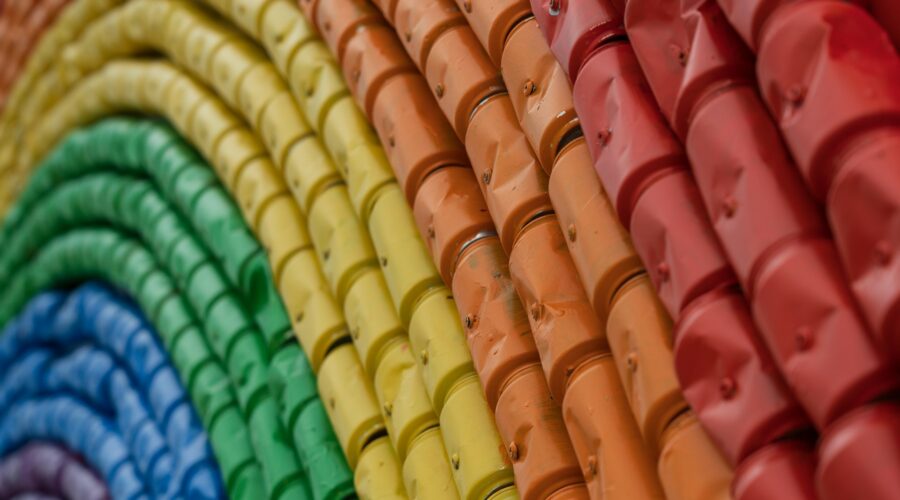Businesses with a vision of sustainable consumption and zero waste help to preserve the environment and gain economic benefits through innovative solutions. Every day an increasing number of brands are joining this goal of sustainable development to reduce the impact of human activity on the planet; this means that you can now find shoes, clothes, furniture and materials from waste.
The circular economy proposes a system where materials can be regenerated and never become waste. Instead of taking from the Earth and then throwing things away, there are other approaches. After all, the useful life of a material is not linear.
With recycling, reuse and remanufacturing techniques, economic activity is being transformed to address current world problems such as climate change — saving water, using less energy and reducing resource extraction.
Leaving footprints with unique shoes
The brand Thaely makes sports shoes out of garbage bags. They identify themselves as “the world’s first 100% recycled and vegan sneaker company.” That is, they don’t just use waste in a small portions, this footwear has been designed entirely with garbage — each with 10 plastic bags and 12 plastic bottles.
The fabric looks like leather. Thaely recycles the plastic bags, sorts them and disinfects them; later, they cut the bags into sheets to make the pattern of the shoe. The glue is also 100% vegan, the sole is made from recycled rubber and the stitching is made from 100% recycled polyethylene terephthalate from plastic bottles. The bags in which the product is packaged are recycled as well, but the most incredible thing is that you can plant the box and ten days later have a basil plant.
However, you might wonder what happens to these products when you throw them away. If landfill waste is your primary concern, Blueview Footwear created 100% plant-based, biodegradable shoes, which can be composted, but if lost on the beach could be home to mollusks.
The plant-based materials, without forever plastic, reduce carbon emissions, a radical technology for times that call for it, making the brand “the world’s first biodegradable shoe for those committed to the future of the planet.”
More than fashion, sustainable style
If you love fashion, you will love stylish, sustainable products like the eco-friendly sunglasses made from coffee grounds. The venture helps reduce plastic pollution and uses coffee waste from some of the more than 2 billion cups of coffee drunk worldwide every day.
Your next purse, wallet or backpack could be made from the plastic bags of potato chips and other snacks. EcoKaari uses a process that maintains traditional weaving techniques, but using recycled plastic. The designs, colors and sizes are varied, helping you look good while taking care of the planet.
To make products look like leather, some ventures are using discarded mangos, cactus, bamboo, among others. This allows you to give a second life to food, avoiding waste and chemicals that pollute.
An eco-friendly home
Some constructions are using sustainable materials, but you don’t need to move to have a home that’s in harmony with the environment. Why not decorate your existing home with recycled items?
For example, ReFactory uses perfume bottles and other beauty products to create chairs, shelves and planters. And, MarSinPlast creates colorful objects such as clocks, candle holders and pet products from recycled plastics.
A similar option is Remark Glass, a company that turns glass bottles into decorative objects such as lamps and vases. These designs are specially created by professionals and artists who not only give new life to the material, but also transform it into something beautiful.
Saving biodiversity
Pieces of plastic are often found in the stomachs of animals, with beer and soda rings being a major concern, which can get stuck in beaks and mouths and impede feeding. But the future could be changing, as Saltwater Brewery, a beer producer, is using biodegradable rings made from discarded wheat and barley in production.
New technologies, entrepreneurial opportunities and a mindset toward sustainability are allowing these and other circular economy businesses to emerge. The brightest and most innovative ideas are using waste to create useful products, changing the way we view the process of consumption, but also helping to lessen the impact humans have had on the planet.
Image: Nick Fewings

